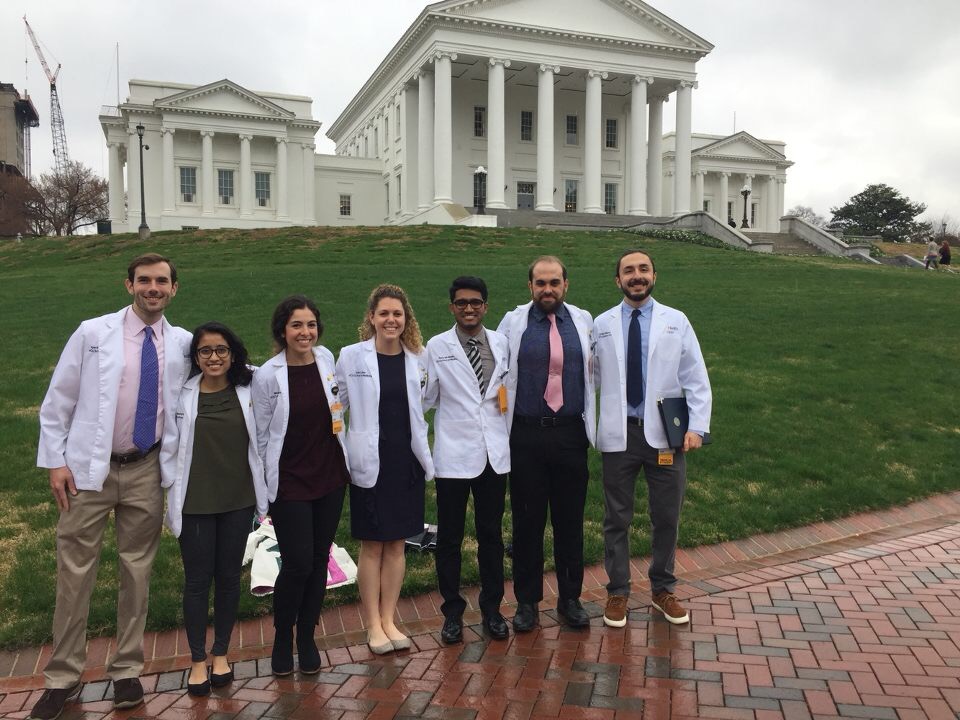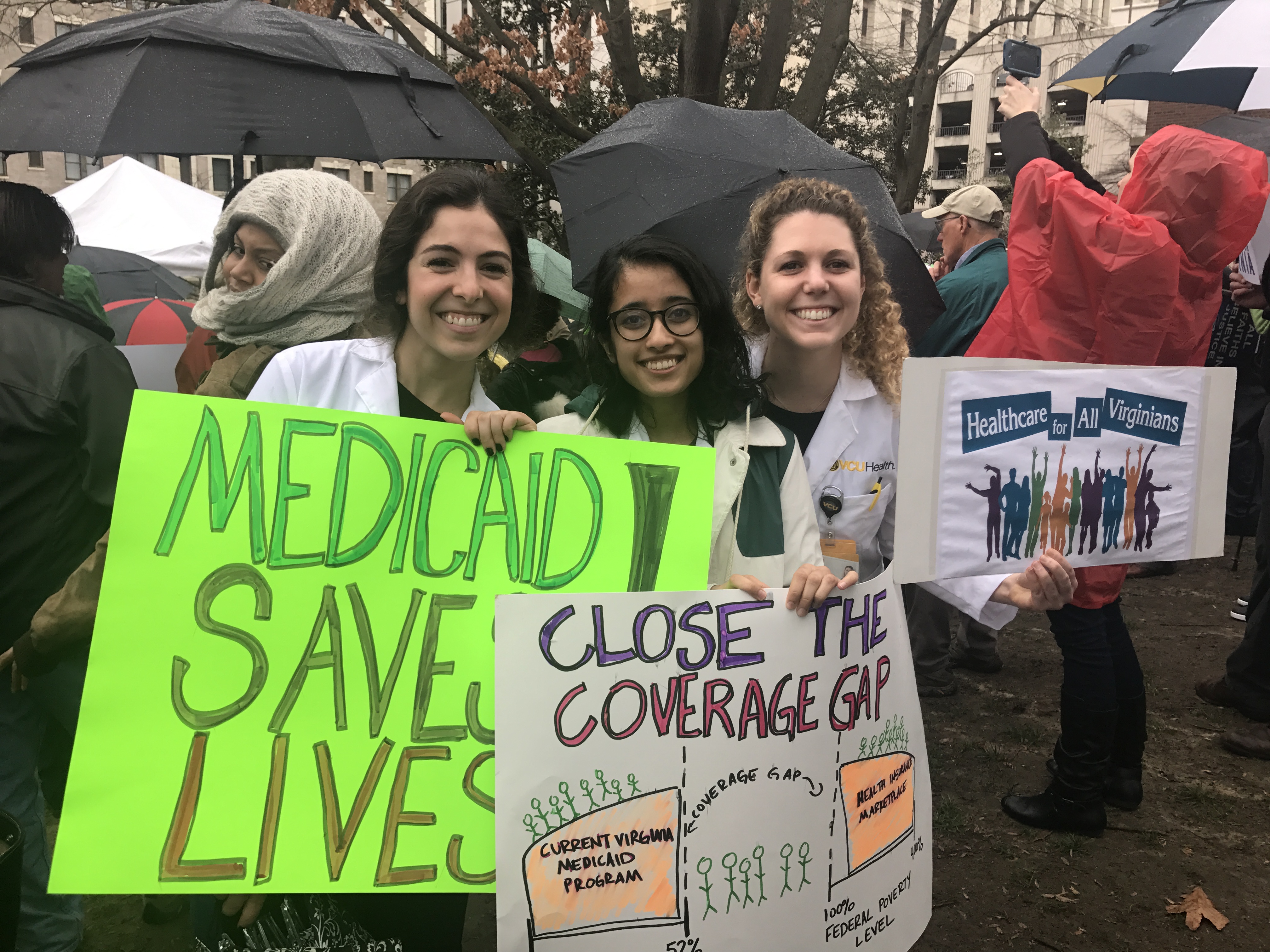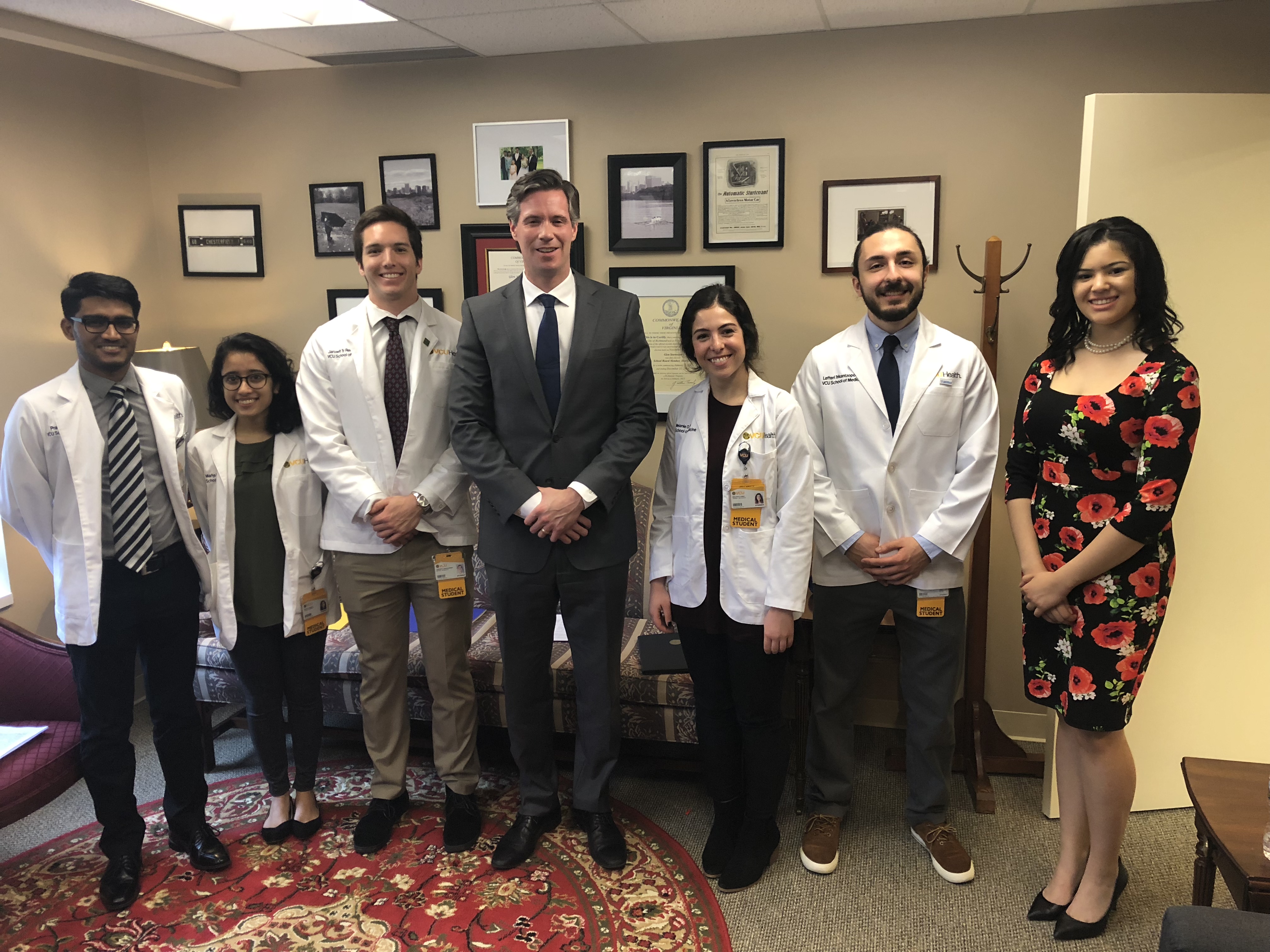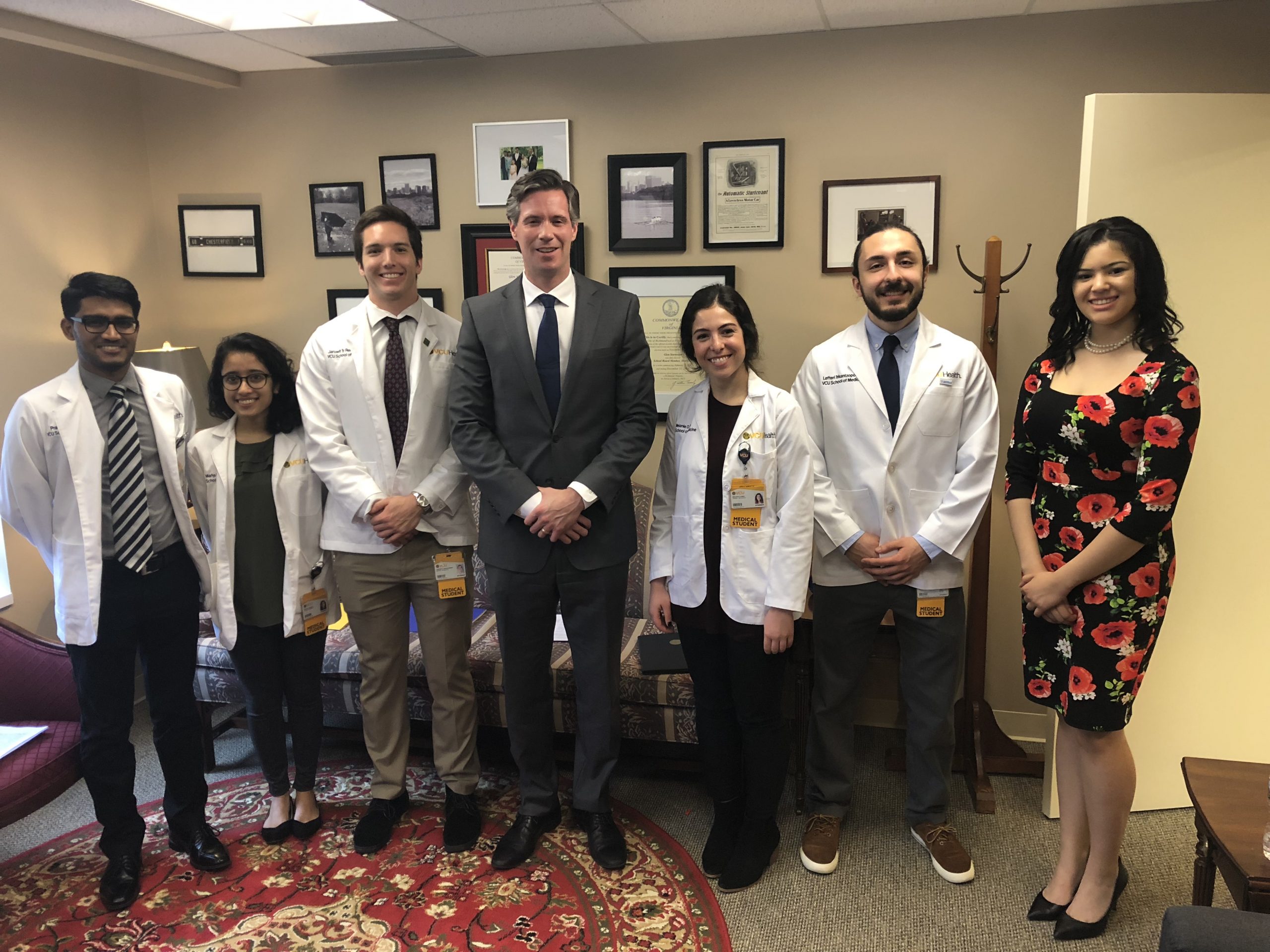
By: Kevin Kurack
Medicaid expansion has always been an issue very close to my heart as a future health care professional. Over the past few summers, I volunteered at Remote Area Medical (RAM) – a traveling free health care clinic in Wise County, Virginia—the heart of Appalachia coal-country.
Thousands of uninsured Virginians come to RAM for routine medical screenings, specialty visits, imaging, and dental procedures. Many in the region avoid chronic disease checkups for the entire year, waiting to address their health care concerns and needs with RAM. These are hardworking Virginians: our families, friends, neighbors, and colleagues. They wait months on end, often in chronic pain or suffering from chronic disease, to receive basic health care services.
One of my attending physicians volunteering at RAM noted the drastic demographic change in RAM’s patient population since passage of the Affordable Care Act. “We used to see a pretty even split between patients from Kentucky and Virginia,” he told me. “Now I only see Virginians here.”
In a state that expanded Medicaid under the Affordable Care Act in 2014, Kentuckians would have less need for RAM.
On Thursday, February 22, 2018, the Virginia House of Delegates approved a budget proposal that would expand Medicaid through the federal funding outlined in 2010’s Affordable Care Act to provide new health care access to nearly 400,000 Virginians. On the same day, the Virginia State Senate approved its own budget proposal–one that did not include any plan for Medicaid expansion in the state. In fact, a Senate floor amendment proposing expansion was struck down 21-19 along party lines.
But the fight for Medicaid expansion in Virginia is nothing new. In 2010, after the Affordable Care Act was signed into law, Virginia was one of twenty-two states to opt-out of expansion under the Supreme Court’s National Federation of Independent Business (NFIB) v. Sebelius ruling. In doing so, the state denied coverage for hundreds of thousands of Virginia’s most vulnerable citizens and lost billions in potential federal funding (around an estimated $400 million per year) via taxes that were already being paid to the federal Medicaid program by the state.
Over the next eight years, statewide expansion seemed impossible with a conservative House and Senate dominating the state legislature, rejecting all attempts at expansion; however, in November of 2017, Virginia’s political world turned upside down. Control of the House came down to a race that was so close, the final result was decided by a name drawn from a bowl. With such a dramatic shift, the state suddenly began buzzing about the potential for Medicaid expansion–reinforced by new Democratic Governor Dr. Ralph Northam who pledged to continue his predecessor’s support for statewide expansion.
Entering this new, dynamic time in Richmond, our AMSA chapter at Virginia Commonwealth University (VCU) School of Medicine seized the opportunity to fight for political change and make an impact on our state legislature. On Thursday, March 1, we donned our white coats and arrived at the Richmond General Assembly Building prepared to discuss Medicaid, promote health care access, and fight for our future patients. We met with legislators and legal aides from a wide variety of backgrounds: Republican senators sitting on the fence, Republican House delegates who voted in support of expansion, and many senators who staunchly opposed expansion in any form. We ended our Advocacy Day with a show of support at the “Healthcare for All Virginians” rally held on the Capitol grounds that afternoon.

Inside the offices of our legislators, the issue of Medicaid expansion was electrifying and divisive, yet hopeful and surprising. Delegate Terry Kilgore (R, District 1), a conservative from southwest Virginia who, despite prior opposition, voted in support of the Medicaid expansion.
In meeting with his office, we delved into his rationale for the switch. Ultimately, his constituents needed help and access to physicians in order to ensure a healthy workforce and employment. But, Representative Kilgore’s newfound support appears to have stemmed from a critical component of the House’s proposal: the ability to seek a waiver under the Trump administration requiring work provisions to allow access to care. While the AMSA chapter at VCU does not support work requirements for Medicaid enrollment, we recognize that this may be the only viable political path to achieve expansion in the state at this time.

Despite the proposal’s inclusion of work requirements, we found mixed reception to the idea of Medicaid expansion across the State Senate. Senator John Cosgrove (R, District 14) opposes the House’s budget proposal on the grounds of funding. Similar worry was expressed by other Senate Republicans, who were fearful the federal government would cut off its promised 90% contribution in Medicaid funding under the new administration. However, not all were deterred – we spoke to senators very much involved in negotiations regarding the possibility of expansion. In fact, Senate Finance Committee co-chairman Emmett Hanger (R, District 24) has a history of expansion support, proposing his own Medicaid expansion plans in the past.
With an estimated 83% of Virginians supporting Medicaid expansion, it appears we are closer than ever to making broader access to health care coverage a reality in Virginia. Ultimately as future medical professionals, the students of the AMSA chapter at VCU support expanding Medicaid to provide coverage for 400,000 Virginians, ensure a healthy state workforce, address the growing opioid epidemic, and provide a boost to the state’s economy by bringing our tax dollars back to Virginia.
Kevin Kurack is a first-year medical student at Virginia Commonwealth University School of Medicine and the Legislative Representative for the AMSA Chapter at his school.

